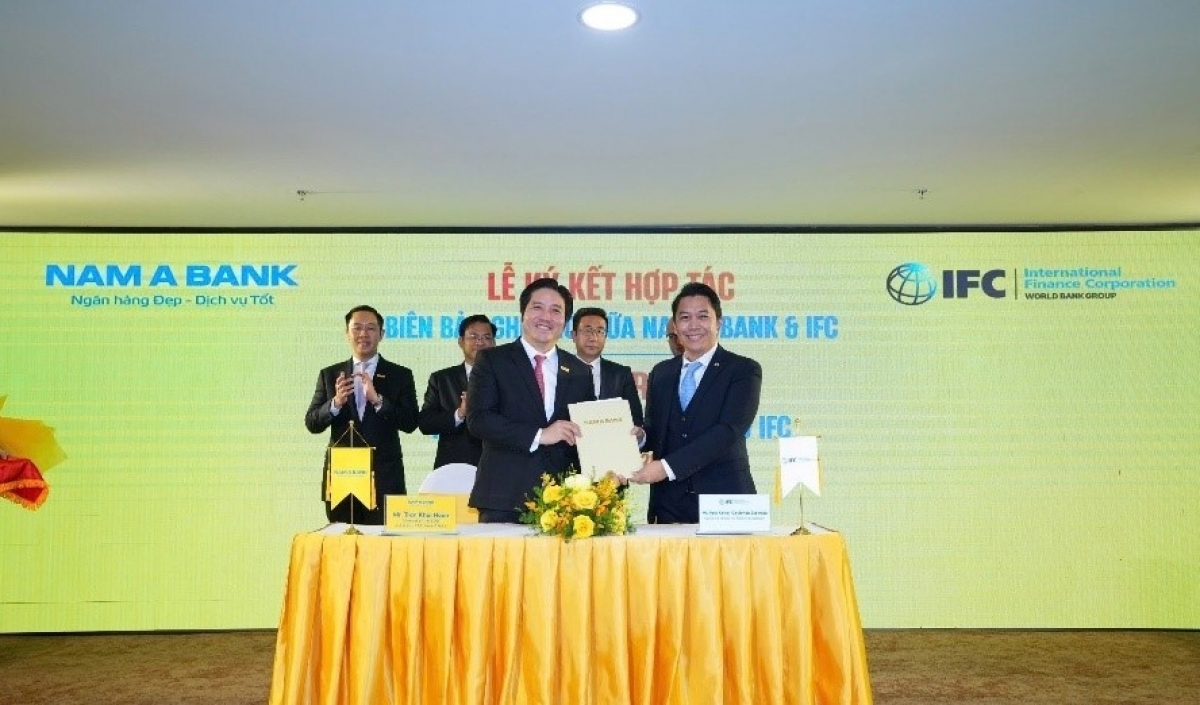INTERNATIONAL INVESTMENT
AND PORTAL
The Law on Digital Technology Industry (DTI), passed in June, marks the first time any country has formally and comprehensively recognised digital assets under national law.
 Prof. Dr. Andreas Stoffers from FOM University in Essen, Germany
Prof. Dr. Andreas Stoffers from FOM University in Essen, Germany
Vietnam is now uniquely positioned among global economies to harness the power of blockchain, AI, and virtual assets, not only as technologies of the future, but as tools for structural transformation. This legislative milestone aligns with Vietnam’s broader ambition to become an industrialised and high-income country by 2045.
The DTI law acts as both a legal anchor and a launchpad, embedding digital technologies into the country’s legal framework while empowering public and private institutions to scale digital solutions, attract investment, and compete internationally.
Unlike previous piecemeal reforms, the law provides a holistic and strategic approach to Vietnam’s digital transformation. It defines the contours of digital products, services, and platforms; establishes state support mechanisms for the domestic digital economy; sets security standards; and outlines responsibilities for public sector leadership in digitalisation.
One of the law’s most pivotal features is its official recognition of digital assets. This legal clarity paves the way for regulated markets, safe adoption of cryptocurrencies, and innovative applications of blockchain in sectors such as finance, supply chain, and public administration. Given that Vietnam ranks second globally in cryptocurrency ownership, this is not only progressive, it’s essential.
Crucially, the law also commits to strengthening local innovation. Domestic firms that develop digital technologies, particularly those with a verifiable Vietnamese origin, will be supported through incentives, regulatory sandboxes, and state-led research partnerships. Public institutions are expected to lead by example in adopting and showcasing digital tools that improve governance and public services.
Aligning with broader reforms
The DTI law is not a standalone initiative. It is embedded within a broader political and economic reform strategy. Resolution No.68-NQ/TW, adopted in May, declares the private sector as the most important driving force in Vietnam’s national development. This marks a significant philosophical and strategic shift from state-led development towards entrepreneurial dynamism and market-led growth.
Under this resolution, the government aims to double the number of private firms to two million by 2030, raise their GDP contribution to 60–65 per cent, and cultivate 10,000 internationally competitive CEOs. These are not vague aspirations, they are tangible indicators of Vietnam’s commitment to rebalancing its economy in favour of innovation, productivity, and global competitiveness.
As a German economist specialising in EU-ASEAN relations, I cannot help but draw comparisons to Germany’s post-war economic miracle, known there as Wirtschaftswunder. Vietnam’s current approach mirrors the principles that once propelled West Germany: belief in entrepreneurship, legal certainty, institutional reform, and a strategic focus on small- and medium-sized enterprises.
Moreover, it should be seen in a direct connection with Resolution No.57-NQ/TW from May, which focuses on promoting sustainable, innovation-driven growth by enhancing digital transformation and green development across Vietnam’s economy through upgraded technology, stronger institutions, and private sector engagement.
Beyond legislative and strategic announcements, Vietnam is implementing administrative consolidation, merging provinces and centrally governed cities to improve coordination and eliminate bureaucratic redundancy. This reorganisation has significant implications of faster permit approvals and licensing processes, harmonised infrastructure planning across regions, and more consistent delivery of public services.
Importantly, this is not about over-centralisation. Provinces and cities will continue to compete for investment and development projects. But the playing field will be more transparent, and governance will be more efficient. For foreign investors, this sends a clear signal: Vietnam is not only open to investment, it is systematically upgrading how it governs, allocates resources, and supports enterprise.
The adoption of the DTI operationalises the strategic visions laid out in major resolutions by establishing a legal foundation for digital innovation, while aligning with ongoing provincial mergers and administrative streamlining aimed at creating a more efficient, transparent, and investment-friendly governance framework.
Perhaps the most exciting part of this transformation is Vietnam’s ambition to become a digital financial hub in Southeast Asia. This ambition is anchored in plans to develop two specialised financial centres. The Ho Chi Minh City hub will play the role of a regional and international financial hub, while the Danang centre would become a national innovation and green finance hub.
The success of these centres hinges on digital infrastructure, which includes smart regulations, automated compliance systems, and innovative financial instruments, most notably, the central bank digital currency (CBDC).
The State Bank of Vietnam has ramped up its research into CBDCs and is actively exploring design models tailored to local needs. A well-implemented CBDC could enhance transparency in public and private transactions, curb the informal economy, reduce transaction costs and enable inclusive digital finance even in rural regions.
Importantly, the framework will integrate with the DTI law to form a unified legal environment for digital finance. This alignment could allow Vietnam to leapfrog legacy financial infrastructure and establish itself as a test-bed for regulated fintech innovation in ASEAN.
Vietnam would do well to study the experience of Singapore, which has successfully blended strict regulatory clarity with technological experimentation through the Monetary Authority of Singapore. Like the city-state’s Project Ubin and Project Guardian, Vietnam’s digital currency initiatives could benefit from public-private collaboration, international technical partnerships, and interoperability with cross-border systems.
Ethics and education
While the potential is enormous, we must also reflect on the societal risks. In a Vietnamese context, there is a growing risk that digital tools, especially AI, could displace critical thinking, particularly in education. Students may increasingly rely on AI to produce academic work, bypassing the learning process itself. If left unchecked, this could undermine not only academic integrity but also Vietnam’s future intellectual capital.
Experts such as Ray Kurzweil also warn against unregulated machine intelligence outpacing human oversight. Vietnam must not only regulate digital assets, it must regulate digital behaviour, fostering a society where technology serves people, not replaces them.
This brings us to one of the most pressing challenges: education. Digital transformation cannot succeed unless Vietnam raises the digital literacy of its population. At the university level, curricula must expand to include digital governance, platform economics, cybersecurity, and AI ethics. Faculty should be trained to use AI responsibly, not to shortcut critical thinking, but to amplify human insight.
At the public level, Vietnam’s widespread use of cryptoassets requires financial education campaigns. Many citizens participate in digital asset markets without understanding volatility, security risks, or regulatory obligations. This is not a trivial matter, it is a vulnerability that could undermine public trust in the digital economy.
The government must act quickly to build a broad base of financial literacy, through schools, online programmes, and public media, ensuring that the digital economy is inclusive, transparent, and resilient.
To ensure adaptability, Vietnam should accelerate its implementation of regulatory sandboxes, controlled environments where startups and institutions can test innovations under regulatory supervision. These sandboxes offer multiple advantages, such as promoting real-time learning between regulators and innovators, reducing the risk of systemic shocks by testing new models at a small scale, and fostering international collaboration by creating replicable models for cross-border integration.
Sandbox frameworks are especially useful in fields like decentralised finance, blockchain logistics, and AI-assisted legal services. They allow Vietnam to move fast, but responsibly, keeping pace with global trends while maintaining sovereignty over domestic innovation.
Vietnam’s DTI law is a global prototype for how emerging economies can craft flexible, adaptive, and inclusive digital policy. It reflects the country’s unique strengths: political cohesion, long-term planning, and an openness to innovation.
If implemented wisely, the law could catalyse the same transformative effects that Germany’s economic miracle had in the 1950s, now adopted to the modern world of Industry 4.0 and AI. But success will depend on maintaining balance, between innovation and ethics, speed and oversight, economic ambition and social cohesion. The DTI law should be viewed not as a finished product but as a living legal ecosystem, open to evolution, interpretation, and improvement.
 Central bank bewildered by impossible credit goal triad
Central bank bewildered by impossible credit goal triad
The State Bank of Vietnam lowered its interest rates last week, joining the global easing bandwagon in a bid to cushion the economic fallout stemming from the pandemic.
 CPTPP milestone marks nation’s economic integration
CPTPP milestone marks nation’s economic integration
Vietnam is celebrating the fifth anniversary of its participation in the Comprehensive and Progressive Agreement for Trans-Pacific Partnership. Prof. Dr. Andreas Stoffers from the Friedrich Naumann Foundation in Hanoi reflects on the multifaceted impact of this landmark agreement on the nation’s economic landscape.
 Vision creates path to build competitive enterprises
Vision creates path to build competitive enterprises
Vietnam is undergoing a historic economic transformation. With the adoption of Resolution No.68/NQ-TW, the country has officially declared the private sector to be the most important driving force of the national economy.



















